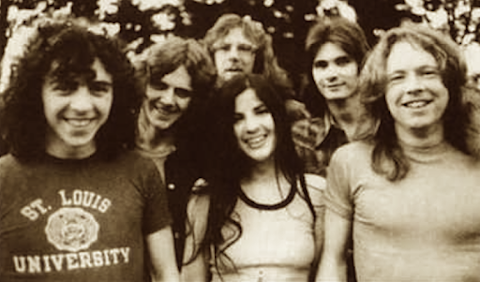#The Jayhawks #Gary Louris #Mark Olson #alternative rock #country rock #alt-country #folk rock #Americana #roots rock #1990s
Led by the gifted songwriting, impeccable playing, and honeyed harmonies of vocalists/guitarists Mark Olson and Gary Louris, the Jayhawks' shimmering blend of country, folk, and bar band rock made them one of the most widely acclaimed artists to emerge from the 1980s alternative country scene. From: https://www.iheart.com/artist/the-jayhawks-56757/
Occasionally, just occasionally, an album lies dormant in my collection waiting to be rediscovered. More likely, as my albums increase to ever more unmanageable levels, I won't have the time to devote to each to really appreciate the depth of the music and quality of the songs involved. Even after replaying Tomorrow The Green Grass by The Jayhawks I still don't think I've fully grasped how good this really is. The problem is there's nothing too prominent. Instead there is a sparse but beautiful feel which, after giving the album a dozen listens, may fall into place but, life is proving so busy and there's so much I want to listen to, I might never realize what I have. Indeed one of the liner notes states "these songs aren't as simple as they might seem at first glance" and that is bang on the money. Tomorrow The Green Grass is one of those rare albums that proves equally rewarding as mere background music or as something to dive right into and explore its dark corners and insightful nooks and crannies.
Playing harmonic country rock which can be traced all the way back to The Byrds, The Jayhawks strength is their strong song-writing as opposed to the trendy posturing of the day. In effect, this is loud folk music that weaves a tapestry of heartache and whimsy, innocence and angst – it could never be accused of being groundbreaking but the band takes pleasure in taking something familiar and performing it really, really well. The vocal harmonies of Gary Louris and Mark Olsen, whose final album with the band this would be, are an absolute joy. There is something of The Everly Brothers in there but it's more of an amalgam of different vocal styles: The Byrds, The Eagles, Buffalo Springfield, there's even something of Tom Petty in the mix and "Bad Time" boasts Beatlelesque vocal harmonies which include a contribution from Sharleen Spiteri taking time out from her band Texas. The best tracks on Tomorrow The Green Grass are some of the best the whole of the alt country genre has to offer. "Blue", "Two Hearts", "Bad Time", "Over My Shoulder" and "Nothing Left To Borrow" are all lovely in their simplicity and breathtaking in their execution. From: https://rateyourmusic.com/release/album/the-jayhawks/tomorrow-the-green-grass/












